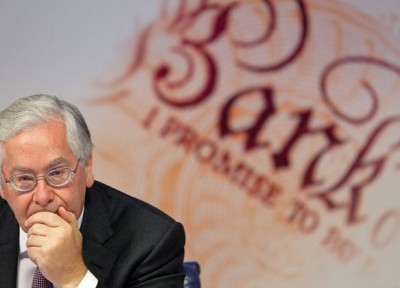He said the Bank “tried, but should have tried harder” to persuade everyone of the need to recapitalise the banks sooner and by more reports The Telegraph.
However, he claimed the Bank was hamstrung by the decision to move regulation to the Financial Services Authority (FSA) in 1997 – a reform “that would return to haunt us”. It left the Bank with the limited power of “publishing reports and preaching sermons”. Regulation is now being moved back to the Bank.
“We did preach sermons about the risks. But we didn’t imagine the scale of the disaster that would occur when the risks crystallised,” he said.
“With the benefit of hindsight, we should have shouted from the rooftops that a system had been built in which banks were too important to fail, that banks had grown too quickly and borrowed too much, and that so-called ‘light-touch’ regulation hadn’t prevented any of this.
In a veiled attack on Labour and the FSA, he also revealed that he had pushed for a major recapitalisation of the industry in early 2008 but been rejected because “it wasn’t a popular message”.
“From the beginning of 2008, we at the Bank began to argue that UK banks needed extra capital – a lot of extra capital, possibly £100bn or more,” he said in the second BBC Today Programme Lecture on Wednesday evening.
A bail-out was orchestrated in October 2008, and a second one in early 2009. Ultimately the banks raised a similar amount, with taxpayers injecting almost £70bn into Royal Bank of Scotland, Lloyds Banking Group and Northern Rock.
“That bold action in October 2008 could have happened sooner,” Sir Mervyn said.
